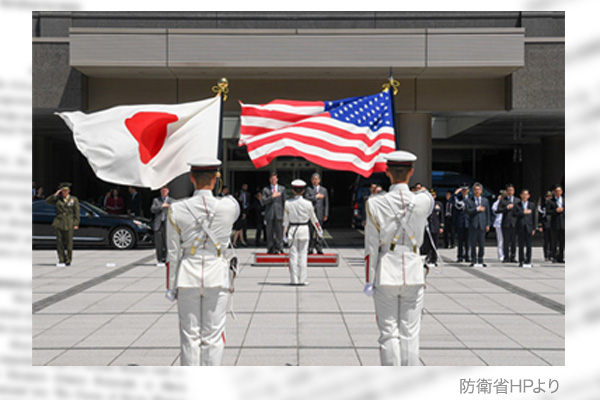On the 74th anniversary of the end of the Pacific War, I feel that the world is entering a new phase as the international situation has been reversed since years just after the war. I want Japan as a whole to wake up as soon as possible.
When the war ended, the U.S.-led allied forces devised systems to prevent Japan and Germany from restoring military power. They forced Japan to accept the Constitution’s Article 9. The "MacArthur Notes," showing basic points stated by the Supreme Commander of the Allied Powers to be included in the new constitution, attempted to prohibit Japan from exercising even the right of self-defense. Germany was allowed to have federal military forces that were designed only to deter the Soviet Union and incorporated completely into the North Atlantic Treaty Organization. This is the reason German forces don’t have their own staff office. Lord Hastings Lionel Ismay, a close aide to British Prime Minister Winston Churchill during World War II and the first NATO secretary general, is known for his famed statement that NATO was designed to “keep the Soviet Union out, the Americans in, and the Germans down.”
Japan failing to respond to a U.S. about-face
How has the situation changed by now? In the United States that is still the biggest player in the international community, President Donald Trump has publicly criticized the unfairness of the Japan-U.S. alliance in which the U.S. is obliged to defend Japan while Japan is not obliged to defend the U.S. Regarding the current crisis in the Persian Gulf, the U.S. has demanded that relevant countries form a U.S.-led coalition to defend their respective tankers. It would be natural for a country to defend its own tankers. Nevertheless, Japanese Defense Minister Takeshi Iwaya told U.S. Defense Secretary Mark Esper at their meeting on August 7 that Japan would decide on its response in consideration of securing stable crude oil supply, Japan’s alliance with the U.S. and Japan’s friendly relations with Iran. It is difficult to understand why he gives consideration to relations with other countries before Japan takes any action to defend its tankers.
Iwaya’s remark apparently indicates Japan’s dilemma that it cannot respond to changes in the international situation, particularly an about-face in the U.S. administration’s attitude on Japan. President Trump may see Japan as a strange country that raises various reasons to buy time in response to the U.S. proposal for the coalition to pave the way for Japan to defend its own ships.
Japan required to be strong
Since last year, President Trump has strongly urged NATO allies, especially Germany, to abide by their international commitment to spend at least 2% of GDP on defense. President Trump at a private meeting has indicated he could withdraw the U.S. from NATO, according to U.S. press reports.
The United States now demands Japan and Germany to be militarily strong. The Japanese constitution that prevents Japan from becoming militarily strong has become an impediment for the U.S. The NATO as a military alliance has become irrelevant as its members fail to abide by their commitment. Japan should have national armed forces in response to the changing international situation. We have to notice the necessity of speeding up constitutional amendment to that end.
Tadae Takubo is Vice President of Japan Institute for National Fundamentals and a professor emeritus at Kyorin University.


